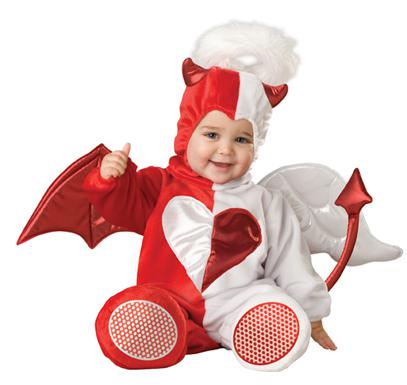Someone forgot to tell a group of 15-month-old infants they are flawed and that without proper (religious or moral) instruction, they will be unfair and selfish. Rather than being born this way, they appear to have been born another way: with built-in expectations of fairness and a willingness to share. These are the conclusions reached by Marco Schmidt and Jessica Sommerville in a recent study (open) of 47 infants, the majority of whom consistently showed surprise at unfairness and demonstrated a willingness to share.
The authors investigated infant sensitivity to fairness and willingness to share using two experiments. In the first, infants watched a film showing someone dispensing milk and crackers to two people sitting at a table. In one scene there was a fair or equal distribution and in another the distribution was unfair or unequal. This is a standard “violation of expectations” or VOE paradigm in which infants look significantly longer at something that surprises them. The second experiment was a straightforward sharing task in infants were given two toys so they could express a preference for one. They were then asked to share a toy. The infants could choose to share the preferred toy, the other toy, or none.
In the first test, the infants looked significantly longer at the lopsided outcome. This suggests that the unfair distribution sequence violated their expectations of third-party fairness. In the second test, 68% of the infants shared at least one toy. Of these sharers, 32% shared the preferred toy and 37% shared the other toy. Remarkably, the altruistic sharers also looked at the unfair film longer than their non-sharing counterparts. Natural sharers appear to expect fairness in others and are surprised when it isn’t forthcoming.
The authors were testing the hypothesis that fairness and sharing appear early (and reliably) in development as a result of selection: “At an evolutionary level such preferences may have been crucial for our hominin ancestors to enable and maintain cooperation in small groups, and later, in larger groups of genetically unrelated individuals, to introduce norms (e.g., how to share spoils after a group hunt) that fostered group cohesion, and to motivate group members to enforce those norms.” These traits, in other words, would have been adaptive in both ancestral and later environments.
These findings support the hypothesis. By 15 months of age, infants have at least a rudimentary sense of fairness and expect resources to be shared equally. A basic sense of altruism is already prevalent at this early stage of development. This suggests to the authors that “infants evaluate events along morally relevant dimensions” before they receive cultural training reinforcing these tendencies.
Infants are not little devils and indeed appear to be part angel. But as all parents know, they can be a bit of both at times. Because neither purity nor impurity accurately describes infants, the best representation might be this:

Schmidt, Marco, & Sommerville, Jessica (2011). Fairness Expectations and Altruistic Sharing in 15-Month-Old Human Infants PLoS ONE, 6 (10) DOI: 10.1371/journal.pone.0023223



